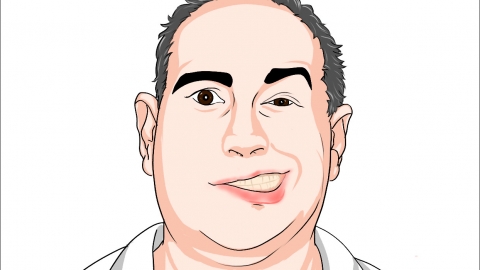What is the reason facial paralysis patients cannot perform facial movements?
Facial paralysis usually refers to facial nerve palsy. In general, the inability to perform facial movements in patients with facial nerve palsy may be caused by factors such as unresolved facial nerve edema, facial muscle weakness, worsening facial nerve injury, facial neuritis, or facial nerve degeneration. If discomfort symptoms occur, timely treatment at a regular hospital is recommended. Detailed analysis is as follows:
1. Unresolved Facial Nerve Edema
In the early stages of the disease, the facial nerve is in an edematous state, and facial movements can worsen nerve compression and cause discomfort. Patients should reduce facial activity and avoid actions such as frowning and puffing the cheeks. Under a doctor's guidance, a warm towel can be gently applied to the face to promote local blood circulation and reduce edema. Sufficient rest should be ensured, and exposure of the face to cold should be avoided.
2. Facial Muscle Weakness
Muscles controlled by the facial nerve may weaken, making normal facial movements difficult to perform, and forceful attempts may lead to muscle fatigue. Initially, simple facial muscle relaxation exercises, such as slowly closing the eyes or gently opening the mouth, can be performed. Once strength gradually recovers, progressive rehabilitation exercises under a doctor's guidance can be conducted.

3. Worsening Facial Nerve Injury
Excessive facial movements can stretch the damaged facial nerve, worsening the injury and affecting recovery. Strict adherence to medical advice regarding limitations on facial movements is necessary to avoid excessive activity. During daily speaking or chewing, movements should be slowed to reduce the burden on facial muscles. Facial massage can also be performed to promote functional recovery.
4. Facial Neuritis
Inflammation can impair facial nerve function, and facial movements may stimulate the inflamed area, causing pain or discomfort. Under a doctor's guidance, medications such as prednisolone tablets, acyclovir tablets, and mecobalamin tablets may be used to reduce inflammation and support nerve nutrition. During treatment, direct exposure of the face to cold wind should be avoided, and proper warmth should be maintained.
5. Facial Nerve Degeneration
When nerve degeneration occurs, conduction function is impaired, and facial movements may further hinder nerve repair. Under a doctor's guidance, medications such as vitamin B1 injections, vitamin B12 injections, and sodium citicoline capsules may be used to promote nerve repair. Additionally, acupuncture and physical therapy can be combined to improve nerve function.
In daily life, patients should maintain a regular routine and avoid fatigue. Diet should be light and include foods rich in vitamins. Rehabilitation exercises should be performed as directed by a doctor, without blindly increasing the intensity of facial movements.








